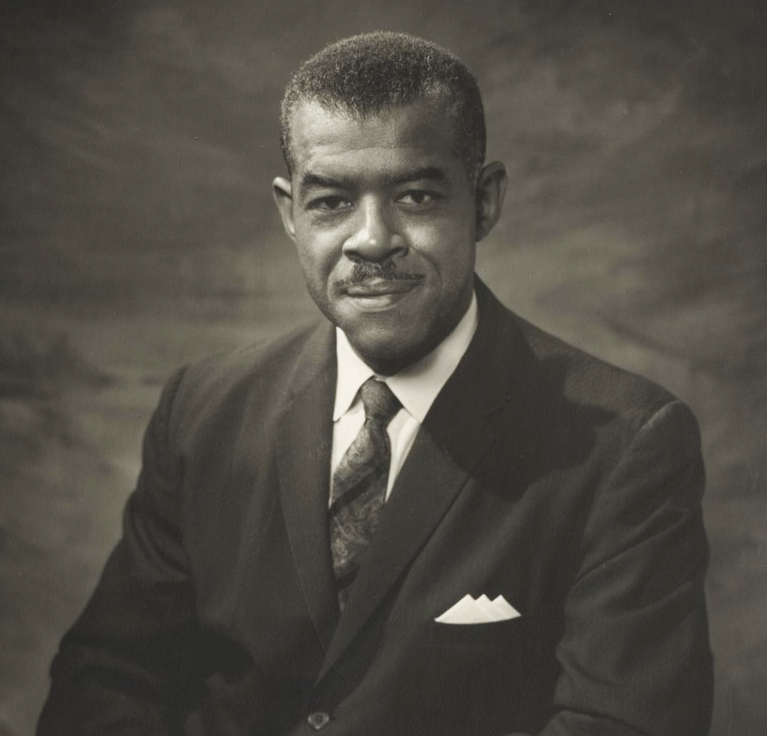
Hear prominent civil rights figure Rev. Otis Moss Jr. remember Attorney Donald Lee Hollowell’s desegregation of the University of Georgia’s case and his contributions to the Civil Rights Movement.
Rev. Moss Shares Memories of Donald Lee Hollowell from State Bar of Georgia on Vimeo.
“When I remember the days of the civil rights movement, there is one person who must be recognized. Attorney Donald Lee Hollowell. His contribution cannot be exaggerated. One of those historic moments happened in the desegregation case at the University of Georgia. I remember attorney Hollowell in the courtrooms--his brilliance, eloquence, and impact as he questioned state representatives and educators trying to defend that which was wrong and evil.
Segregation, racism.
The desegregation of the University of Georgia was one of the great historic breakthroughs in the Deep South. One that you carry with you. That is what attorney Hollowell brought-- not just to the civil rights movement, but to the whole nation. It was a history bearing moment ... which I will carry for all my days.”
-Rev. Otis Moss Jr.

Photo credit: Archives Division, Auburn Avenue Research Library on African American Culture and History, Atlanta-Fulton Public Library System.
Donald Lee Hollowell was born on December 19, 1917, in Wichita, Kansas, one of five children of Ocenia and Harrison Hollowell. The family moved several times during Donald’s childhood, for his father to find work.
At the age of 17 Hollowell’s father made him quit school before his senior year of high school so that he could help support the family. In an act of rebellion, Hollowell enlisted in the army, where he served in the 10th Cavalry, also known as the Buffalo Soldiers.
During his service Hollowell experienced institutional racism and the realities of segregation. This experience stuck with Hollowell and informed his later civil rights activism. While in the army, Hollowell completed his high school education, and in 1938 he left the service to enroll at Lane College, an all-black school in Jackson, Tennessee. Following the Pearl Harbor attack in 1941, Hollowell was recalled to active duty and was sent to Fort Benning in Columbus, Georgia. At Fort Benning Hollowell met Louise Thornton, a beauty salon owner in Atlanta, and the two married in May of 1942. Not long after their wedding, Hollowell was deployed to Europe, and rose to captain by the end of World War II.
After the War, Hollowell reenrolled at Lane College and graduated with honors in 1947. Following graduation Hollowell attended law school at Loyola University in Chicago, Illinois. He received his law degree in 1951 and moved to Atlanta to be with his wife, who was enrolled in graduate school at what was then Atlanta University (now Clark Atlanta University). Louise went on to become an English professor at Morris Brown College in Atlanta.
In Atlanta, Hollowell opened his own law practice. As the Civil Rights Movement gained momentum, there was a growing need for attorneys to represent clients in integration and other civil rights violation cases. Hollowell’s desire for racial and social equality led him to become a prominent civil rights attorney.
Among Hollowell’s most high-profile successes was his work with the NAACP in winning the 1961 integration of the University of Georgia by African American students Hamilton Holmes and Charlayne Hunter.
Hollowell also represented Martin Luther King, Jr. following King’s 1960 arrest during student sit-ins in Atlanta. In 1966 President Lyndon B. Johnson appointed Hollowell as director of the southeastern regional Equal Employment Opportunity Commission, a position he held for nearly 20 years.
Hollowell and his wife Louise were involved in many civic organizations and Hollowell mentored many other African American attorneys and civil rights activists, including Horace Ward, Vernon Jordan, and Marvin Arrington. He also maintained lifelong friendships with many of his clients, including Charlayne Hunter-Gault and Hamilton Holmes. Hollowell died of heart failure on December 27, 2004.
Source: Donald Hollowell Papers, Auburn Avenue Research Library
About the Arc of Justice Project